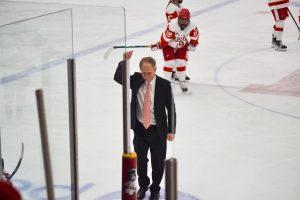
It’s 4:30 a.m., and Brian Durocher snaps open a red flair pen, reaches for a blank notecard and begins to write.
Sitting on the couch in his Brookline condo, Durocher jots a note of gratitude to a donor of the Boston University women’s hockey program. He signs the 4-by-6 card with a cursive “Coach D,” checks a name off his list and grabs a new letter for the next donor. A rerun of last night’s SportsCenter plays on a TV in the background.
When the sun rises in a few hours, Durocher will enjoy the simple pleasures of retirement: time with his grandkids, a round of golf, a few hours to relax and watch the news.
But during this year’s “thank you note season,” an annual three-month sprint after BU Athletics’ Giving Day that stretches from April to June, Durocher is back at work. He’s about halfway through the list of 240 donors. Durocher, 66-years-old, seems unbothered by the amount of time the task requires. Besides, he’s woken up early his whole career, and old habits die hard.
Over decades of coaching, Durocher has sent thousands of handwritten notes. To donors, to former players and prospective recruits, to his family, to the zamboni driver at Walter Brown Arena.
Durocher retired from his longtime post as BU women’s hockey head coach in February, leaving behind a winning culture he built from the ground up. Durocher has earned five Hockey East titles, reached the national championship game twice and been at the helm of the program since women’s hockey became a varsity sport at BU in 2005. He also captained the Terriers’ national title-winning 1978 men’s hockey team, splitting time in net with “Miracle on Ice” hero Jim Craig.
The resumé is impressive, but Durocher’s reputation in the college hockey world was forged away from the rink. Not just through the wins and championships, but with birthday texts and handwritten notes, at weddings and funerals.
Durocher is a call away for almost anyone he knows. Usually, he’s the one calling.
Calm, patient, prepared
Durocher almost never raised his voice during games and practices. A blunder would never lead to a gauntlet of suicides or a chewing out. Durocher didn’t get mad; he got disappointed.
In her four years on the team in the late 2000s, Laurel Koller only saw Durocher get visibly angry once: after seeing goaltender Allyse Wilcox break her goalie sticks one too many times. Durocher told Wilcox that if she snapped one more stick, she’d have to pay for a new one.
“It was almost like if you did something, it wasn’t just that you were disappointing your coach,” Koller said. “You were disappointing your dad, someone who’s a part of your family.”
As Durocher built the program’s culture through his coaching style, he simultaneously recruited the talent necessary to compete on the national stage.
All-Americans, like Victoria Bach and Catherine Ward. Gifted scorers, like Jenn Wakefield and Tara Watchorn (who will be Durocher’s successor as women’s hockey head coach). And, of course, Marie-Philip Poulin, the three-time Olympic gold medalist who has built a case to be the greatest women’s hockey player of all time.
Durocher’s notes to recruits were all part of recruiting strategy, just as the post-Giving Day notes are, in part, a fundraising tactic. Durocher first started sending the cards as an assistant coach on the men’s side at Colgate, Brown and BU. When Durocher flew from Boston to Canadian cities like Toronto or Vancouver, he’d crank out a handful of letters on the plane, and then mail them out to recruits from a Canadian post office.
“I always thought it was a good touch,” Durocher said.
At Colgate, Durocher was instrumental in recruiting the 1990 team that made a miracle run to the NCAA championship game as an assistant coach under Terry Slater, one of Durocher’s biggest influences.
Two years after that run, Slater tragically died in the middle of the season. Durocher was named interim head coach, but didn’t get the job as full-time head coach. He pivoted to the assistant job at Brown, before rejoining Jack Parker’s coaching staff at BU and ultimately taking the women’s head coaching position.
Slater, who Durocher has called a “master psychologist,” inspired some of the coaching tricks Durocher went on to use with the women’s team at BU.
Members of the 2005 team still vividly remember one Slater-inspired practice, when Durocher replaced the printed practice plan — which he pinned to the glass each day — with a tube of toothpaste. After his players skated around in confusion for a few minutes, Durocher huddled the group together.
“Our team is a lot like toothpaste,” Durocher told them. “You can always squeeze a little bit more out.”
From Parker, Durocher picked up a wealth of Xs-and-Os acumen, along with one of his favorite coachisms: “Act your age, not your shoe size.”
Longmeadow legend
Durocher is one of the greatest athletes Longmeadow, Mass. has ever produced. With Durocher in net, the town’s historically unheralded hockey team rolled to success. As his friend from high school, Brian Rooke, remembers it, the team wouldn’t score many goals, but would squeak out 1-0 and 2-1 wins behind Durocher’s heroics. He eventually secured a spot on the Springfield Olympics, a junior hockey team coached by former NHLer Gary Dineen.
Teammates and friends in Longmeadow, a small town near Springfield, affectionately nicknamed Durocher “Leo,” after his great-uncle Leo Durocher, the Hall-of-Fame baseball manager who coined the phrase “nice guys finish last.” Others called him “Gump,” after 5-foot-7 goalie Gump Worsley, who won four Stanley Cups with the Montreal Canadiens in the 1960s.
Durocher is only 5-foot-8, but he was selected by the Hartford Whalers in the 15th round of the 1974 World Hockey Association draft. The WHA — which included the Whalers, Edmonton Oilers and Winnipeg Jets — merged with the NHL five years later. He opted to jump directly into coaching instead, taking a job at American International College in Springfield shortly after graduating from BU. Two years later, he returned to coach under Parker, before leaving for Colgate in 1985. Between his playing days and multiple coaching stints, Durocher spent 36 years at BU.
‘Things are changing’
Durocher began to consider retirement last season. The team had been struggling, and Durocher — the oldest coach in Hockey East — was struggling to keep up with the landscape of college hockey recruiting, which has become increasingly reliant on social media.
“Things are changing. We haven’t been getting the bounces in recruiting that we usually get, or have been getting. I started wondering, is my age part of it?” Durocher said.
The Terriers posted a second consecutive losing season and lost to Merrimack College at home in the first round of the Hockey East Tournament. He’ll stay with BU as a special assistant to the director of athletics, but the reins of the women’s hockey team have been fully passed along to Watchorn, who recently hired a new assistant coaching staff.
‘Everybody knows Brian’
Over the years, Durocher has become something of a BU hockey celebrity.
Before the BU men’s team played Cornell for a spot in the 2023 Frozen Four, Durocher sipped a beer in the arena concourse, flashing thumbs-up at the few dozen fans who recognized him.
One man approached and asked if Durocher remembered playing golf with him a few years back. “Braintree Country Club,” Durocher quipped back. “Of course.”
He looked relaxed. Content. The conversation zigged and zagged as different people stopped by. From the state of the women’s hockey program to BU goaltender Drew Commesso’s recent hot streak, then to the varying sizes of ice surfaces in college hockey and a scouting report on the Big Red, who Durocher claimed would have 14 “big tough guys” and 2 skill players.
When Durocher and his wife, Laura, go to hockey games, Laura makes sure Brian stays in his seat.
“If you get up, you’ll never come back,” she tells him.
At the Frozen Four in Tampa, Durocher’s daughter, Kirsten, watched as former Massachusetts governor and NCAA president Charlie Baker walked past a packed hotel bar. “No one said a word,” Kirsten remembers. “Then Brian walks by, and seven people immediately recognize him.”
Allison Coomey, a women’s hockey assistant from 2008-2017, was in shock to see strangers waving at Durocher as the pair drove through Kenmore Square when she first took the job.
“Everybody knows Brian,” she said. “To me, he’s like the mayor of Boston.”
He’s always been that way — even back when he was the hotshot goalie at Longmeadow High. Charismatic, easygoing and happy to talk to anyone about, well, anything — whether that be women’s hockey or traffic on the Mass Pike.
“If you stood next to this guy at a bus stop, you’d get seven minutes of quality dialogue,” Rooke said.
“He doesn’t have an enemy on the face of the earth.”
Durocher’s ability to maintain relationships with old friends is a reason why. It’s the little things, like the messages he’ll send out when his New England Patriots play the favorite teams of his former players and colleagues. Sometimes, when he travels to visit recruits across the U.S. and in Canada, he’ll stop by the homes of former players for a few hours.
“He just understood the bigger picture. He’s a relationship builder and a driver of those relationships.” said Brendan Whittet, who played for Durocher in the ‘90s and is now the Brown men’s hockey head coach.
“They don’t make them like that anymore.”

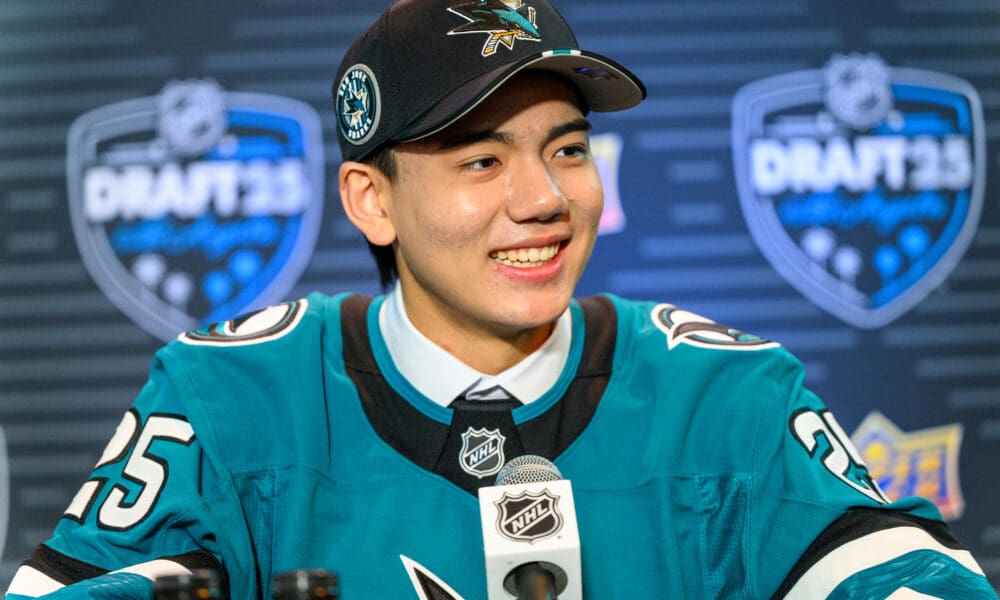
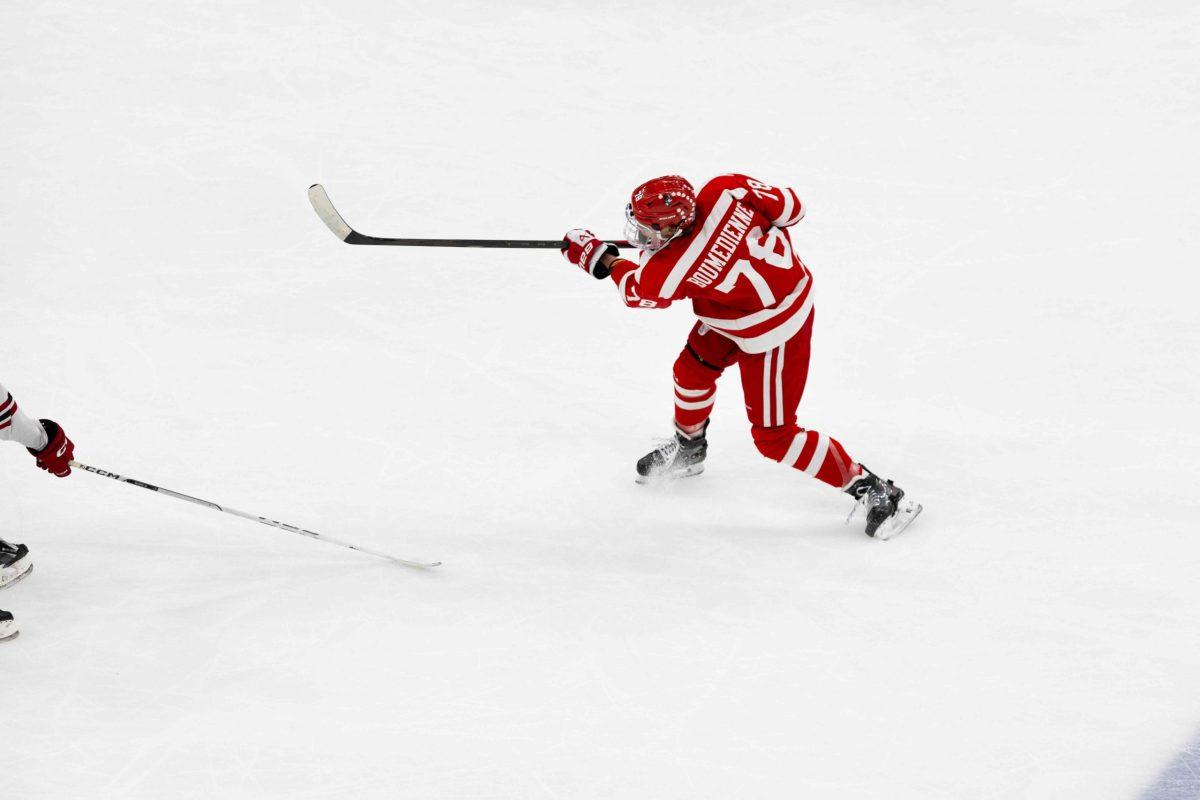
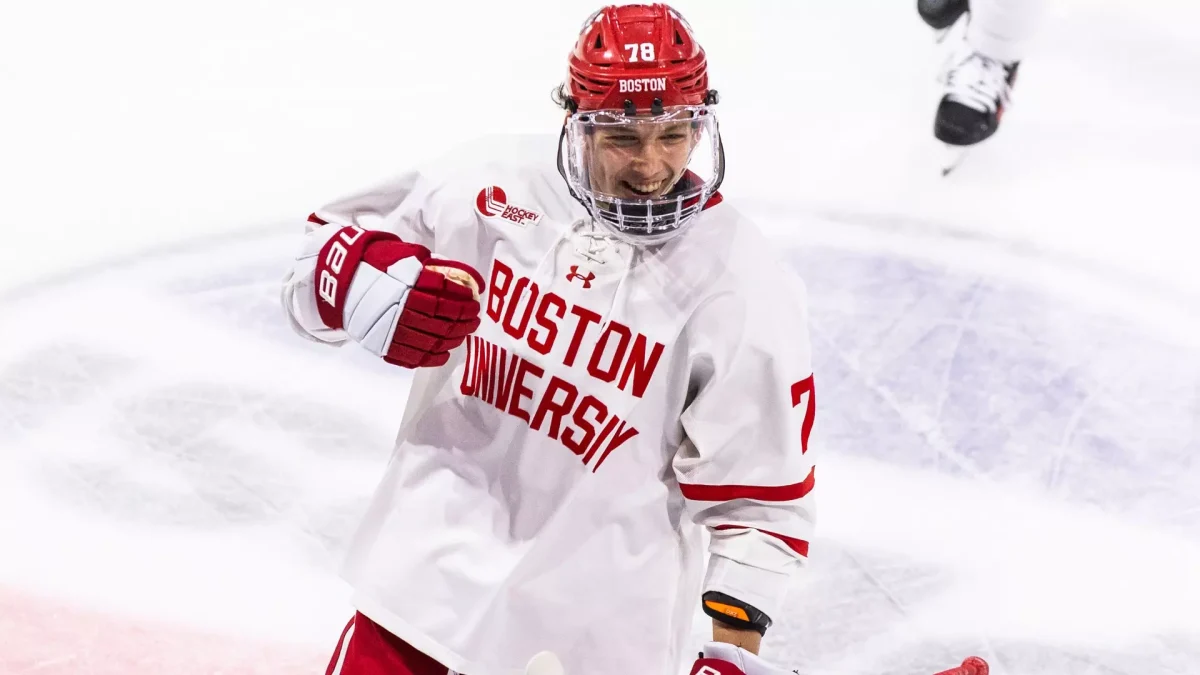


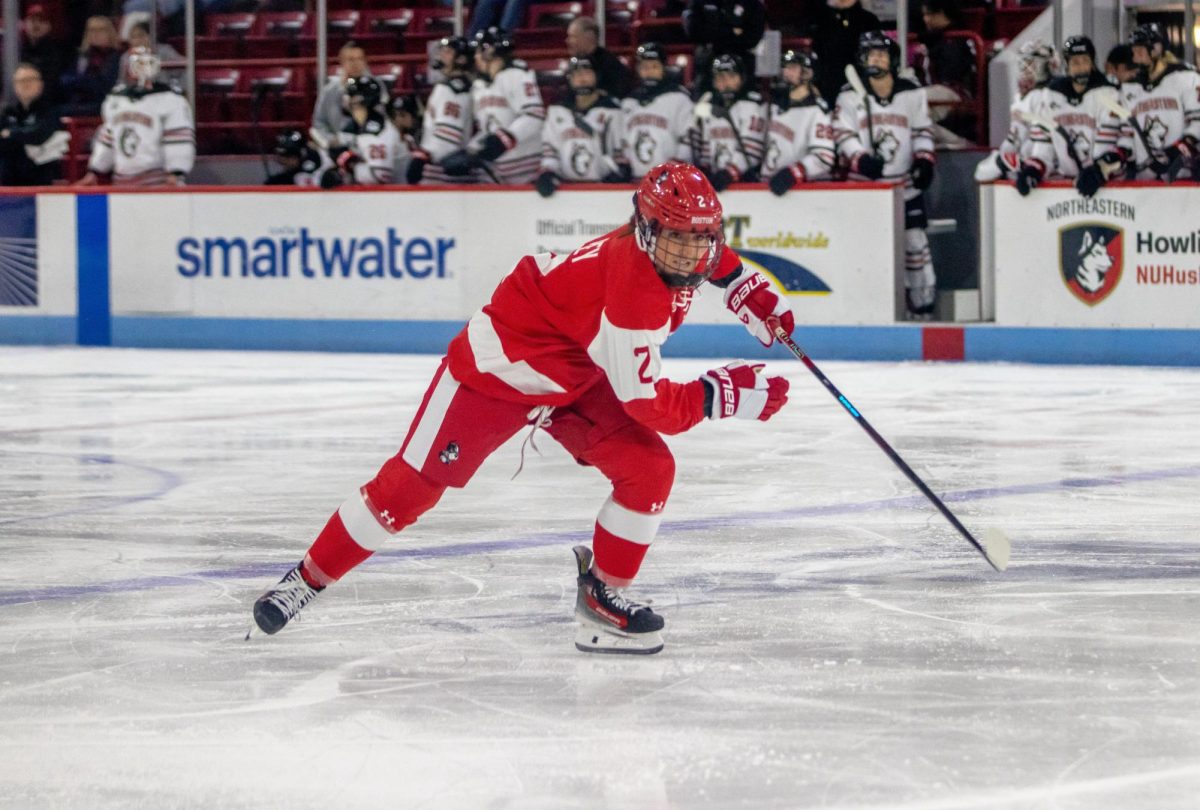
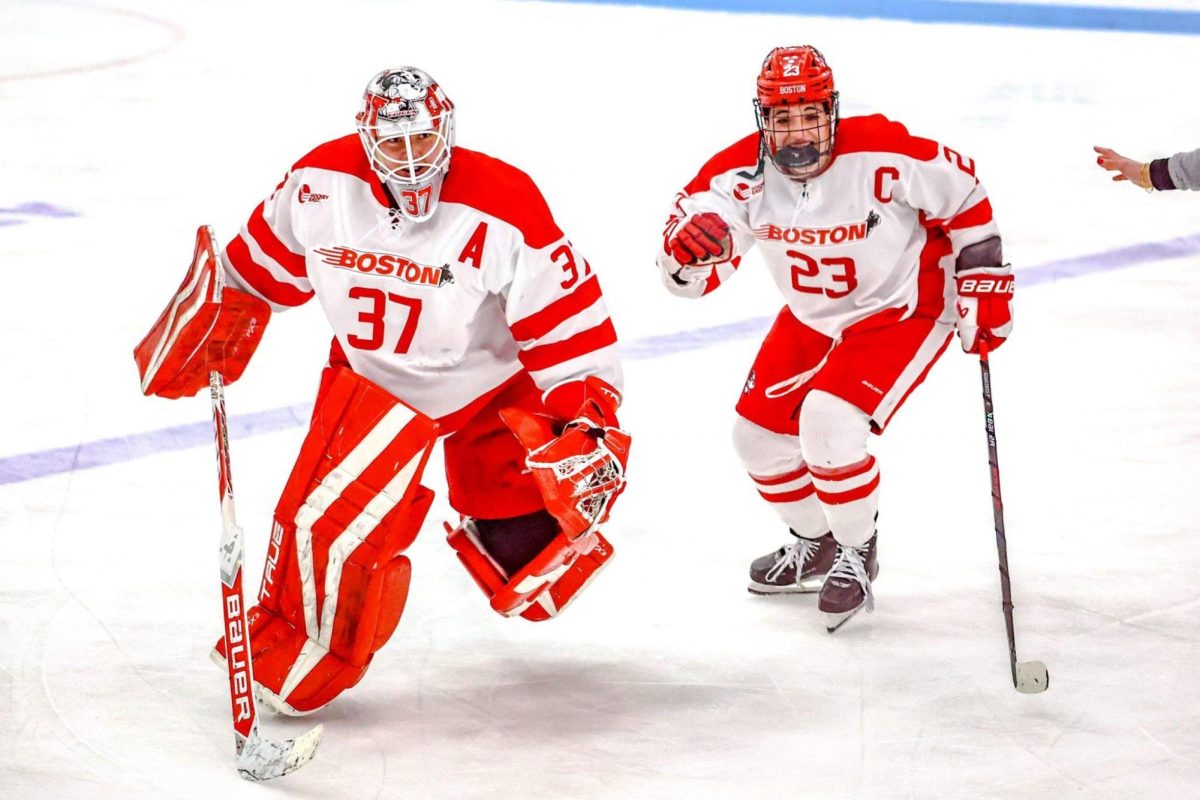
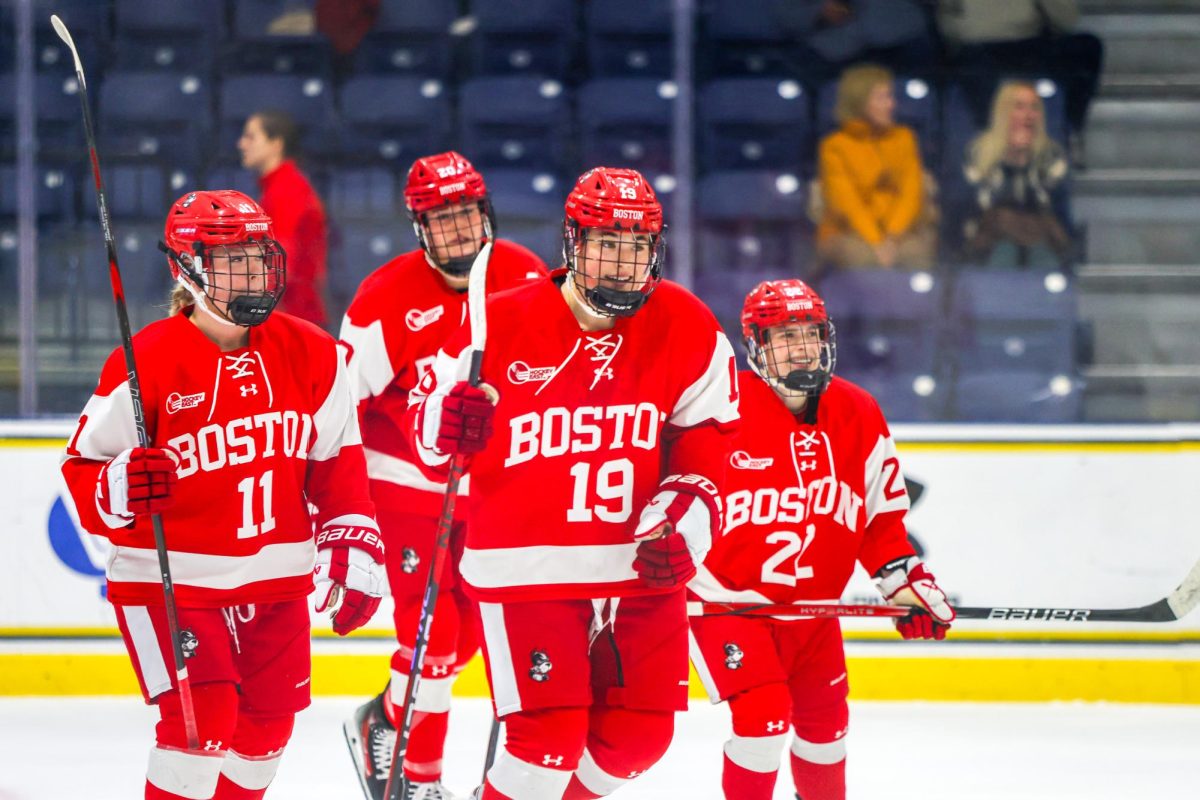
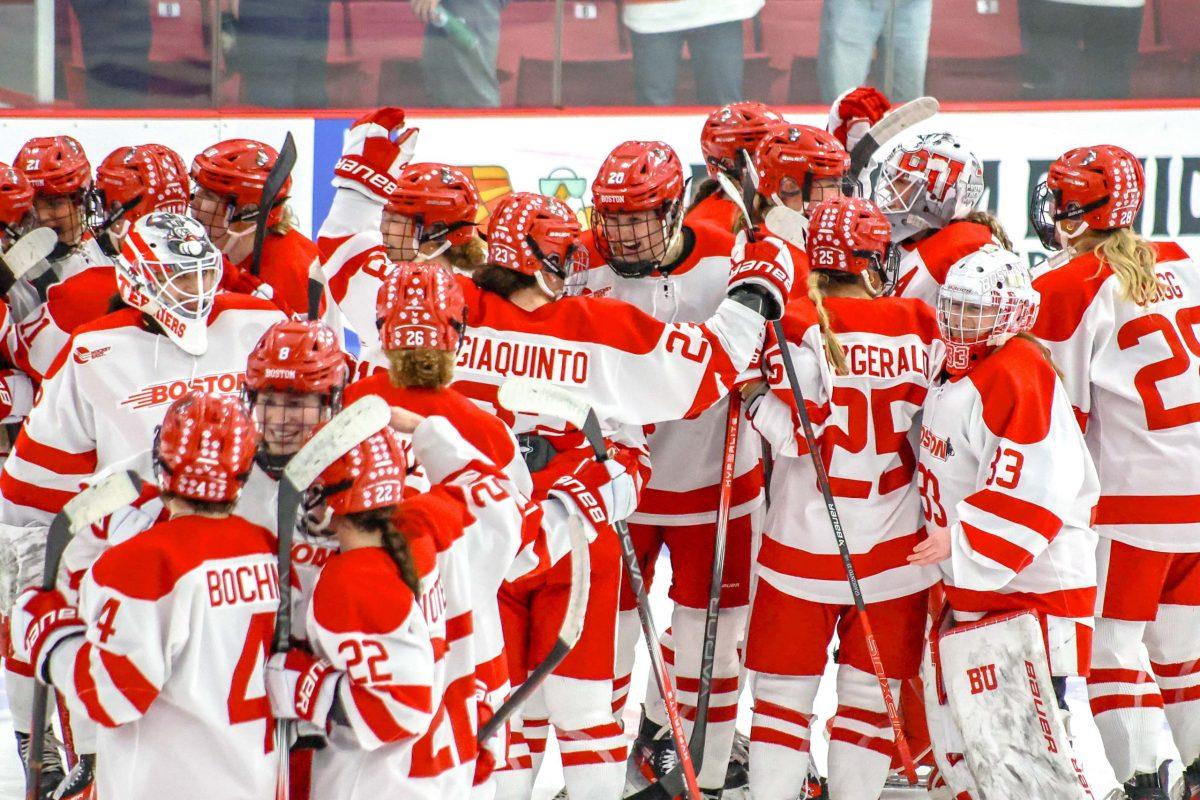
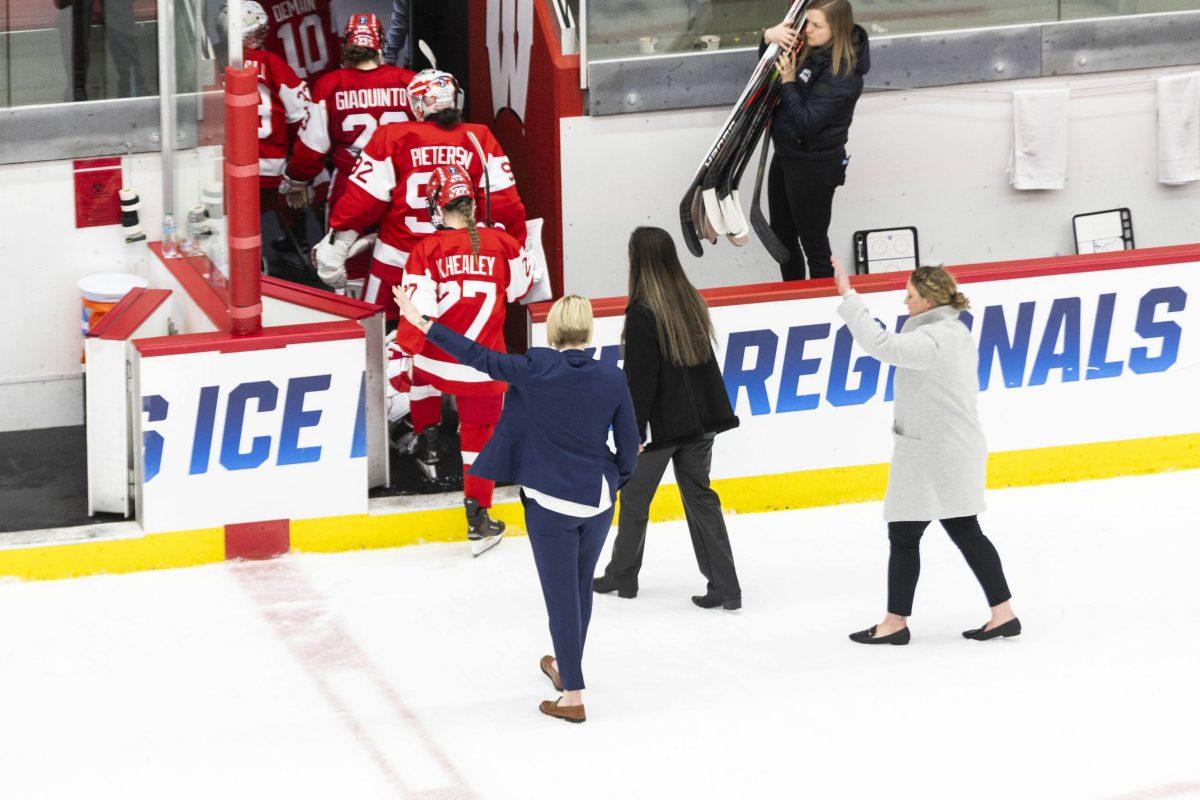
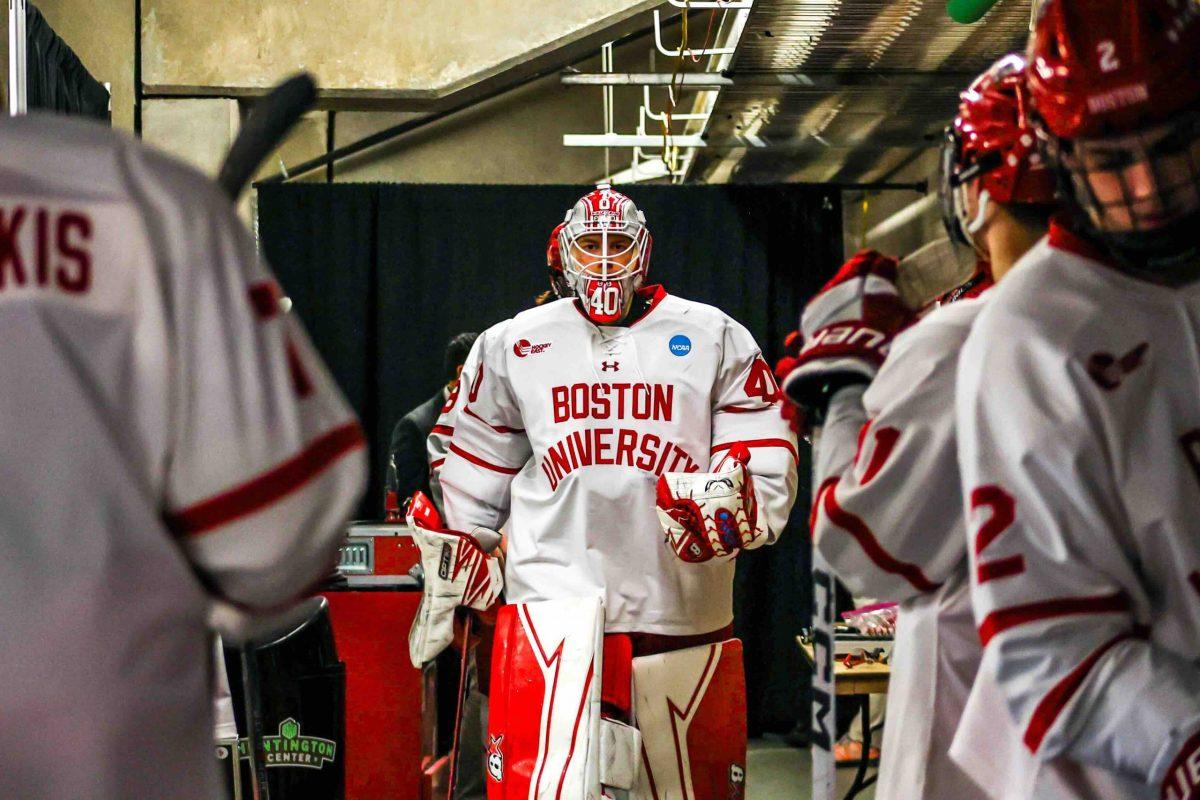
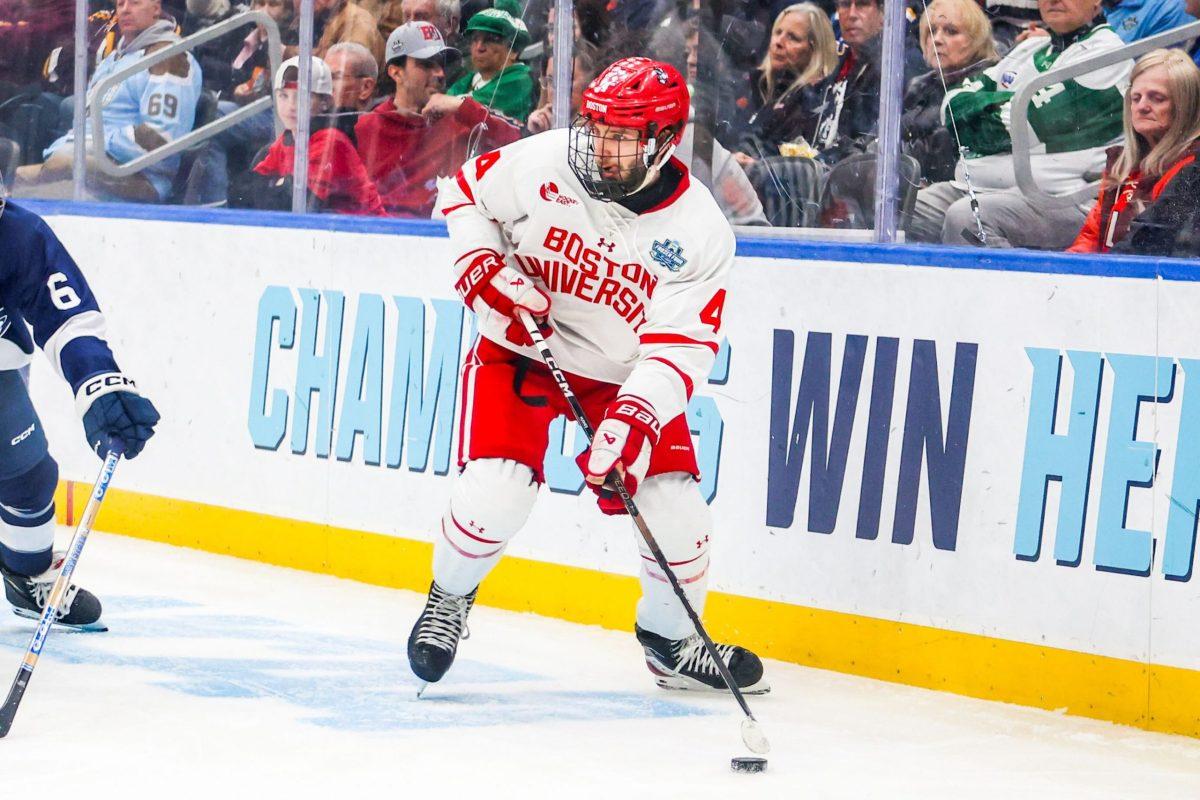
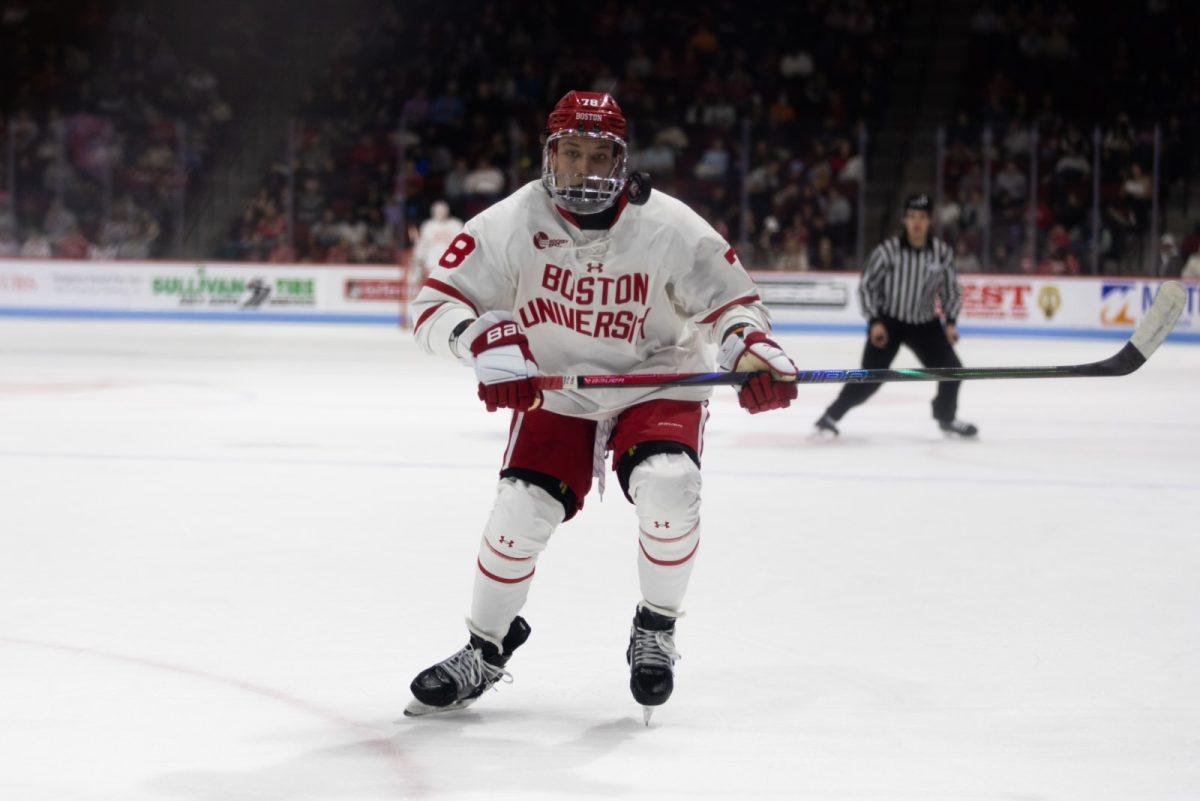
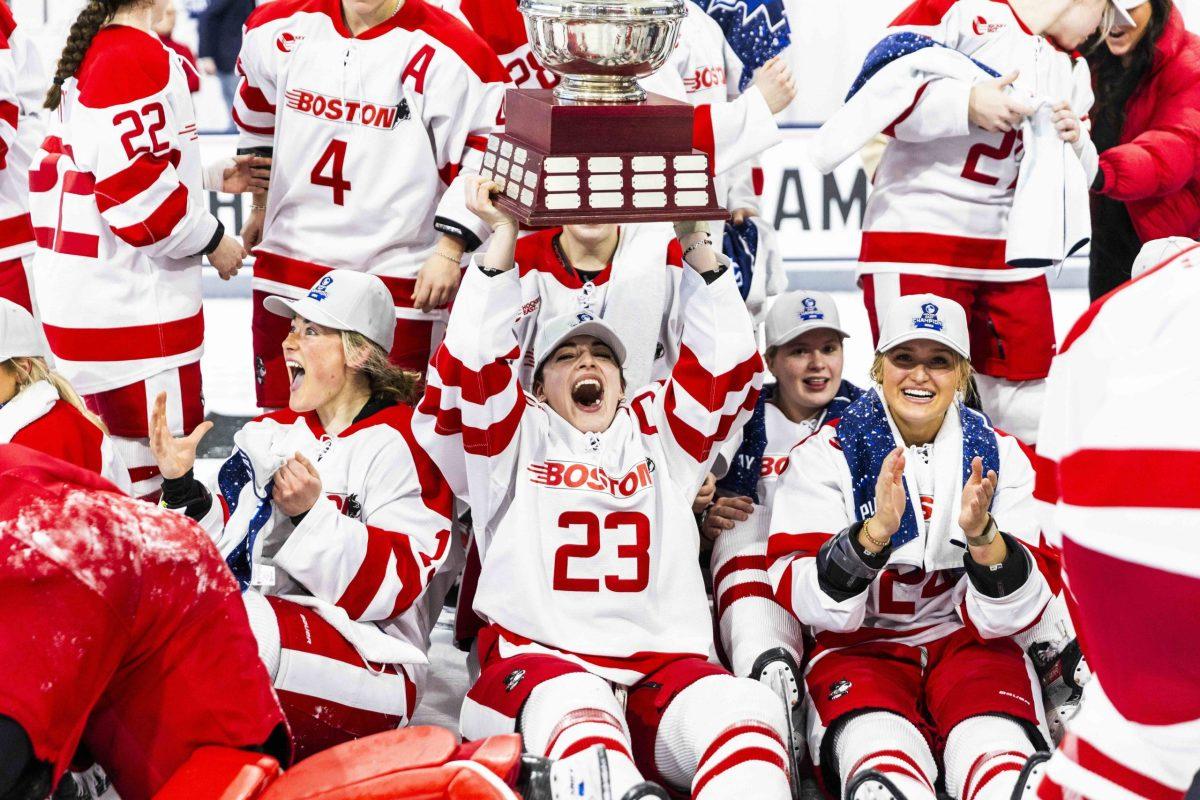
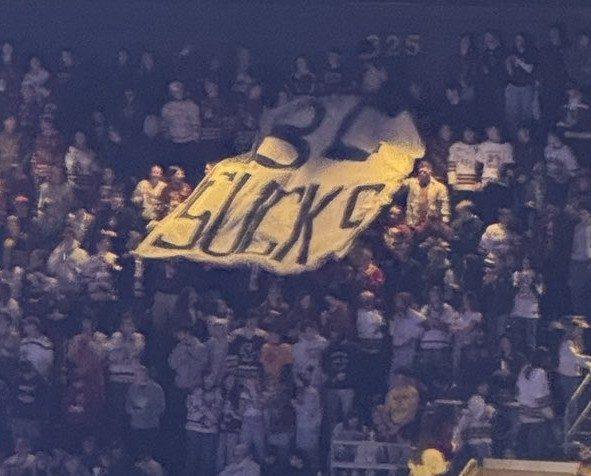
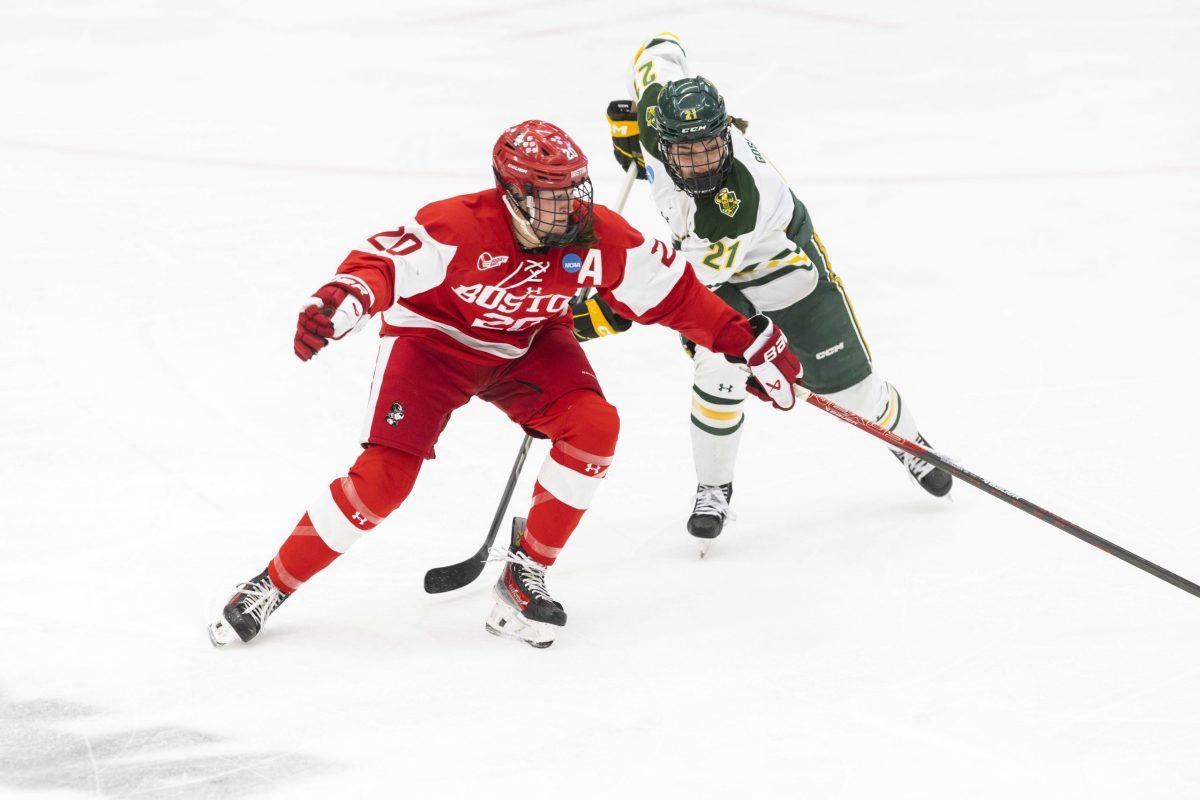
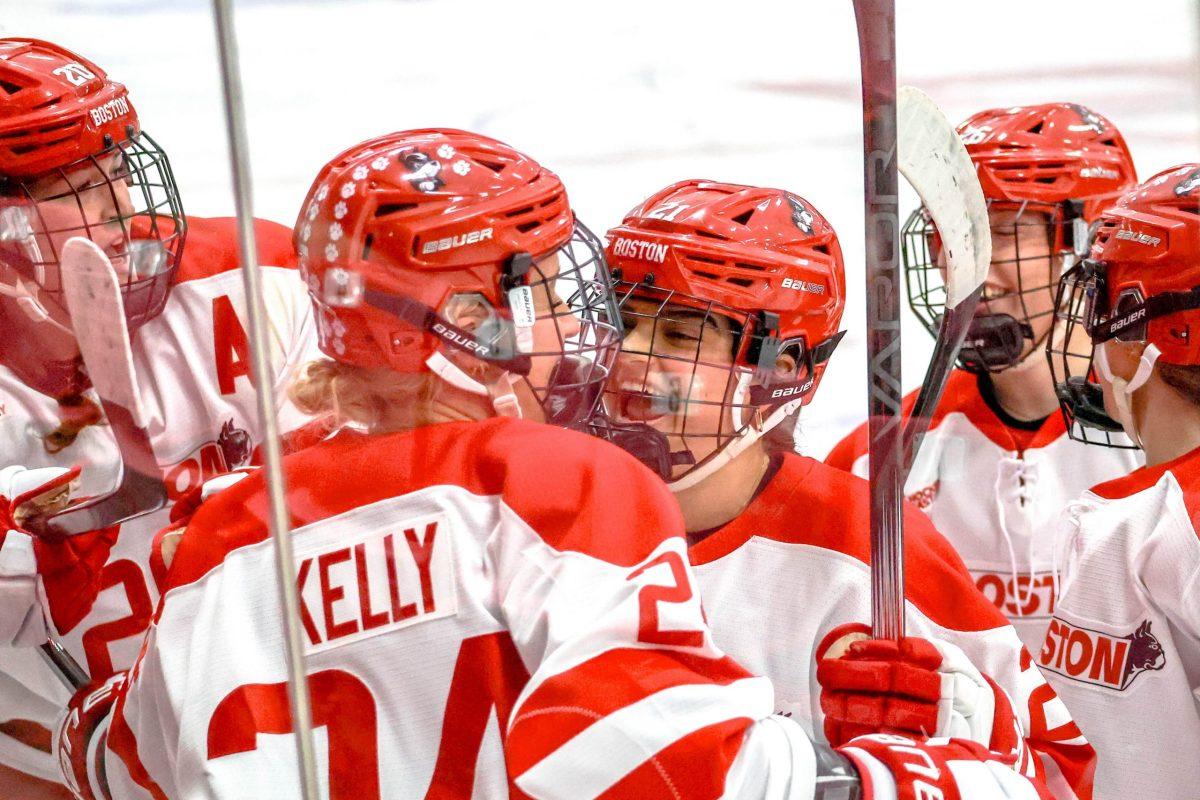
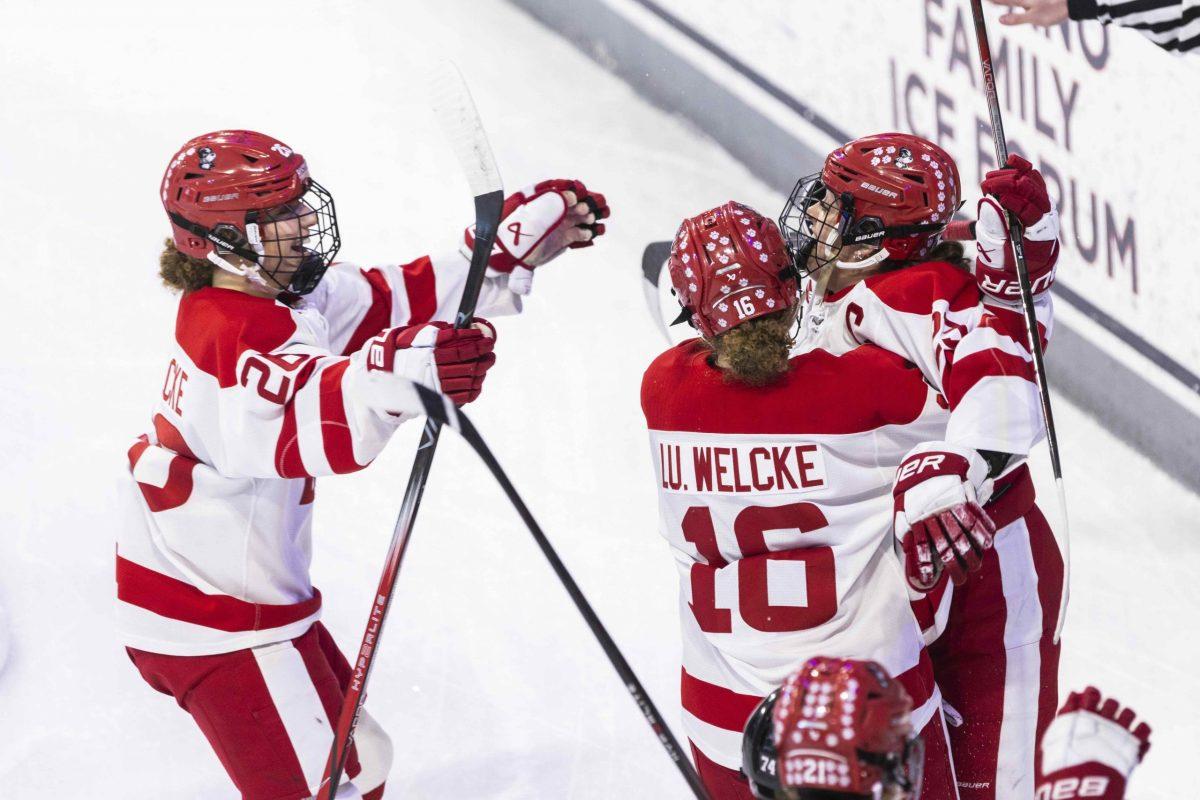
Peter Cahill • May 15, 2023 at 5:40 am
Coach Durocher,
Congratulations on your Retirement! Your commitment to your school, players and all of your supporters will never go unnoticed. The 4 by 6 note cards are the best way to say thank you! I know because I have a few of your cards at my desk.
All the best, Peter Cahill.
Thomas F Casey • May 14, 2023 at 11:24 am
To a great friend and a great coach.
-Tom Casey